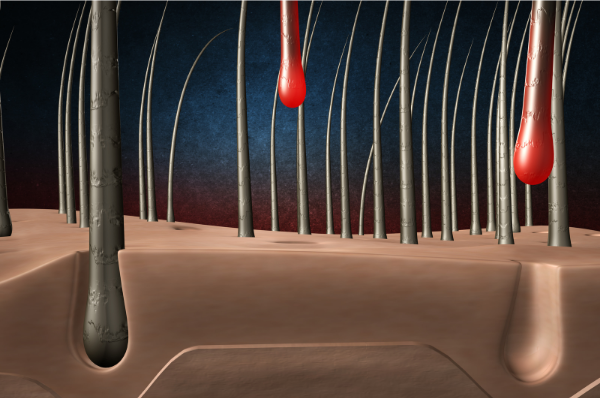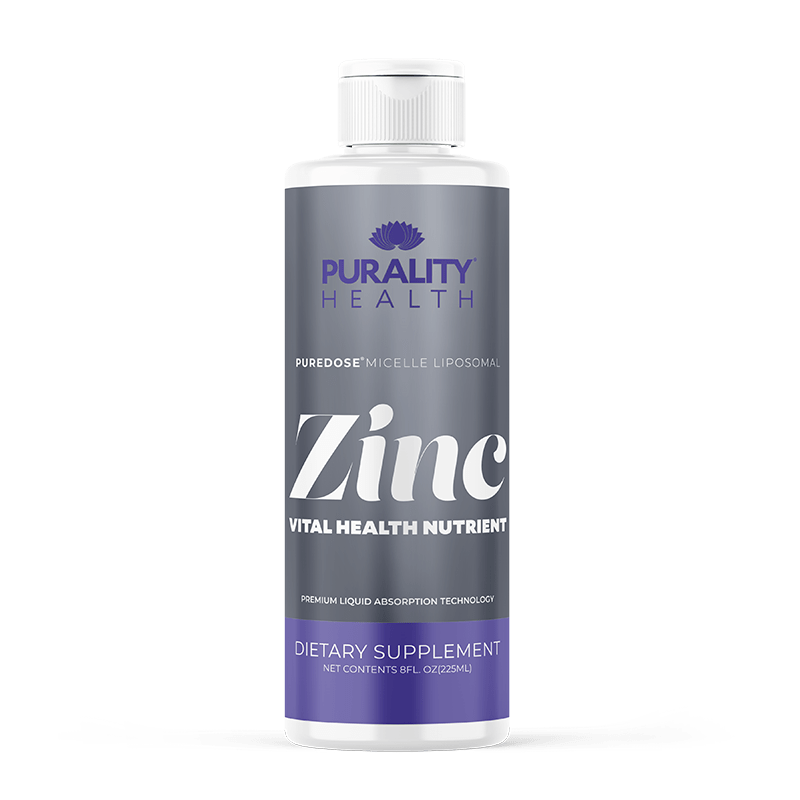Vitamin D Deficiency And Hair Loss – Is There A Link?
Vitamin D is a fat-soluble vitamin that your body needs to function properly. It’s essential for immunity, bone health, cell growth, and more.
But does it affect hair growth?
In today’s blog, we’re going to explore that question and look at the research surrounding it.
Vitamin D and hair growth
Working in tandem with receptors, vitamin D plays many roles in the skin alone. This includes strengthening the layer of the skin which protects the body from outside invaders, promoting immunity, suppressing tumor formation, and regulating the hair follicle cycle. [1]
When the body is low in vitamin D, these receptors are unable to trigger these responses. This can leave your body more vulnerable to bad bacteria, and can also interrupt the hair follicle cycle.
The hair follicle cycle
The hair follicle cycle refers to four stages that all hair goes through. Different types of hair on the body, for example your eyebrows, have slightly different experiences within these phases, so we’ll focus on the scalp.
Let’s take a look at these four stages:
Anagen: the growing phase – this is the longest phase, averaging about 3-5 years, but lasting as long as 7 years in some cases. During this phase, hair follicles are pushing out hairs that will continue to grow until they are cut or they end their lifespan and fall out. At any time, about 90% of the hairs on your head are in this stage.
Categen: the transition phase – this stage picks up right where the anagen phase left off, lasting about 10 or so days. At this time, hair follicles shrink, growth slows, and the hair separates from the follicle. Roughly 5% of your hairs are in this stage at any given time.
Telogen: the resting phase – this typically lasts around 3 months. After the hair separates from the follicle in the catagen phase, new hairs begin to form in the follicle. The recently-separated hair remains in place, neither growing nor falling out.
Exogen: the shedding phase – this phase is why you lose, on average, 50-100 hairs per day. These hairs are in the exogen phase and have come to their time to fall out. During this phase, which lasts about 2-5 months, new hairs are growing in the follicles to replace the fallen hair.
As you can see, replenishing the hairs that are lost everyday is important. Disrupting this cycle can cause trouble such as thin hair or bald spots, as research shows it’s the anagen (growing phase) that’s impacted most by low vitamin D levels. [2]
Vitamin D and hair growth
Since vitamin D plays a role in the hair follicle cycle, it’s no surprise that low vitamin D levels have been linked to hair loss and different types of hair conditions. [3, 4]
One study looked at young women with female pattern hair loss and found that those suffering from the condition had significantly lower levels of vitamin D compared to women not experiencing the hair loss. [5]
Another study found that the longer a deficiency goes on, the worse the hair loss can become. [6]
Researchers believe that introducing vitamin D into the body can help restore hair growth, allowing the hair follicles to ignite that first phase of growth. However, it’s still not fully known if prolonged disruption to these follicles will permanently inhibit their ability to form new hairs.
If you’re worried about your hair, don’t hold off on finding a fix. 
Purality Health’s Micelle Liposomal Vitamin D3 is designed to be absorbed and used by your body. That way, you can be confident your body is getting enough of this crucial nutrient.
That’s plenty of time to try our vitamin D and see how it works for you.
>>> Click here to learn more about how our highly absorbable vitamin D3 can help you!
References and resources:
- https://www.ncbi.nlm.nih.gov/pmc/articles/PMC3687803/
- https://pubmed.ncbi.nlm.nih.gov/20178699/
- https://www.researchgate.net/publication/260993460_Vitamin_D_Deficiency_in_Alopecia_Areata
- https://pubmed.ncbi.nlm.nih.gov/23428658/
- https://www.ncbi.nlm.nih.gov/pmc/articles/PMC5007917/
- https://www.idoj.in/article.asp?issn=2229-5178;year=2019;volume=10;issue=1;spage=45;epage=49;aulast=Siddappa






